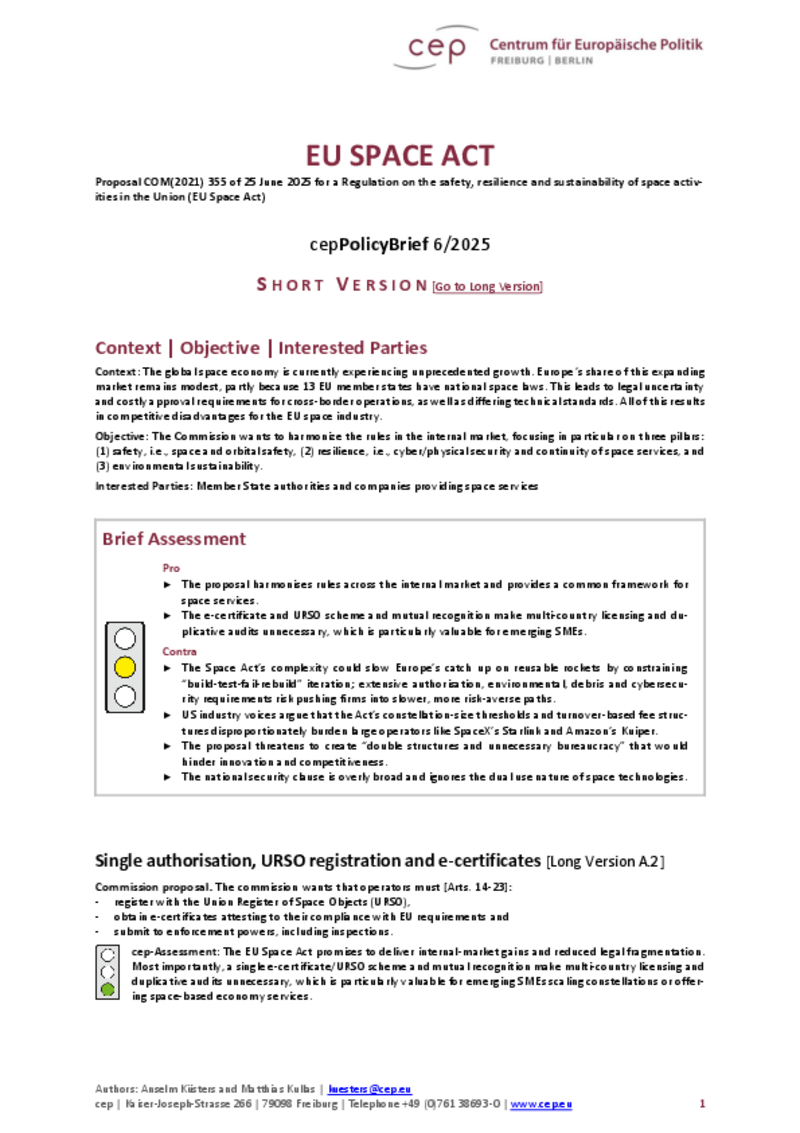
Innovation
EU Space Act
cepPolicyBrief
“The Space Act is more than a technical piece of legislation. It is a test of Europe’s ability to assert its sovereignty beyond Earth,” says Matthias Kullas, cep expert on the internal market, who co-authored the analysis with cep digital policy expert Anselm Küsters. “It is crucial that Europe creates an innovation-friendly environment and does not slow itself down with bureaucracy.”
The Commission’s draft seeks to harmonize national regulations and establish common safety standards. According to the cep, this is necessary to ensure a level playing field for space activities in the European single market. At the same time, overly complex authorization and reporting requirements risk overburdening smaller companies in the rapidly growing space sector.
“Without a European strategy for improved launch systems and reusable launch vehicles, Europe will remain dependent on external providers such as SpaceX,” warns Küsters. “Only with a strong industrial base can the EU compete globally.”
The cep emphasizes that outer space has long been a key economic and geopolitical domain. For Europe to assume a leading role, clear rules, market-based incentives, and a coherent industrial policy are essential. Only then can a rules-based and competitive European space framework emerge.





